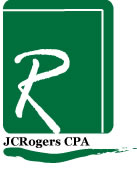Small Business Survival Guide
If you own a small business in today's economy, your survival will depend on how well you manage these 23 key factors.
1) Open a separate bank account for your business, in the business name, and do not use a debit card. Most small business owners cannot refrain from using the debit card to buy personal items and it will get you into trouble. Secondly, if you are the victim of identity theft, unlike personal cards, you probably are not protected against business losses. There are separate rules for commercial accounts.
2) Small business owners should never co mingle business funds with personal funds or use their business account as a personal piggy bank. You will lose the presumption of correctness and your entire business account will be reclassified as personal by the IRS, forcing you to prove every business expenditure. Accordingly, pay yourself a monthly amount to live on and again, never use your business debit card to purchase personal items such as groceries, fast food, etc.
3) Maximize contributions to retirement accounts such as SEP IRAS, Simple plans, Defined benefit plans, etc. Limits relate to your W-2 salary, ouch
4) Take advantage of fringe benefits that your choice of business entity might be entitled to under IRC Section 132
5) Follow the "Economic entity principal" as much as possible, and keep your business separate from your personal finances and affairs. Do not charge business expenses on your personal credit card and do not make those monthly credit card payments from your business account.
6) Make sure you segregate the duties of employees, especially over the recording and the custody of cash, and implement other internal controls
7) Make sure every decision you make contributes some type of value to the business or don't do it. Production increases or there is an ascertainable benefit to the business.
8) Never borrow from the trust fund taxes that are due to be paid to the government to pay other creditors. You will become personally liable
9) If you are paying independent contractors, make sure they are classified correctly, and don't rely on the advice of the PEO
10) Use additional entities to protect from losses and utilize special allocations affecting tax basis as much as possible
11) Study your cash flows, always include a statement of cash flows when having financial statements prepared
12) Know your debt ratios, know your industry specific statistical financial ratios and make policy changes to adjust them often
13) Reduce your inventory as much as possible, use suppliers with large inventories
14) Make sure you are using the correct methods of accounting for your type of industry
15) Familiarize yourself with the substantiation requirements for deducting business expenses such as mileage and meals and entertainment.
16) Reimburse employees for mileage and deduct the expense at the corporate level. You need a written reimbursement policy as an accountable plan.
17) Pay yourself a reasonable wage based on the services you are providing the company, and not your ownership in the company (see case)
18) File all tax returns even though you may not have the money to pay the tax. Penalties for not filing returns can financially break you, and filing the tax returns is required by law.
19) Qualified employer educational assistance programs under IRC 127 are not available to the owners of small businesses, based on federal tax law.
20) Your health insurance that you pay for yourself as a more than 2% shareholder in an S-Corporation, is income to you, based on Federal tax law.
21) Be careful of companies that offer to provide you services: annual minutes, phone book pages, annual reports, or business formation services. Be aware of what you are paying for.
22) If asked by a bank to personally guarantee an S-Corporation loan, borrow the money personally and contribute it to the corporation instead. Tax benefit for loan guarantees only applies to tax partnerships.
23) Make sure your choice of a business entity is the right one for your type of business (Starting Your Business)


